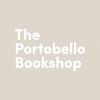
Pop Culture and Curriculum, Assemble!
3 contributors - Paperback
£34.99
Thomas Hatch (@tch960) is a Professor at Teachers College, Columbia University and Director of the National Center for Restructuring Education, Schools, and Teaching (NCREST). His research includes studies of school improvement efforts at the school, district, and national levels. His latest book, The Education We Need for a Future We Can’t Predict (Corwin, 2021), focuses on efforts to create more powerful learning experiences both inside and outside schools in developed and developing contexts. He is also the founder and managing editor of internationalednews.com. He previously served as a Senior Scholar at the Carnegie Foundation for the Advancement of Teaching. His other books include Managing to Change: How Schools can Survive (and Sometimes Thrive) in Turbulent Times (Teachers College Press, 2009); Into the Classroom: Developing the Scholarship of Teaching and Learning (Teachers College Press, 2005); and School Reform Behind the Scenes (Teachers College Press, 1999). Learn more about Tom and keep up with his latest blog posts at thomashatch.org. Jordan Corson is an assistant professor of education and affiliated faculty member of immigration studies at Stockton University. He recently completed his doctorate at Teachers College, Columbia University, where he defended his dissertation, Undocumented Educations: Everyday Educational Practices of Recently Immigrated Youth Beyond Inclusion/Exclusion. Jordan has published research in the fields of education and philosophy, educational change, and teacher education. His research takes up ethnographic and historical methods to interrogate issues of transnational migration and curriculum studies through anti-colonial and abolitionist praxis. Sarah Gerth van den Berg is a doctoral candidate at Teachers College, Columbia University. Her research explores the design and theory of curriculum involving nontraditional spaces, materials, and processes. She has published in the fields of curriculum studies, participatory arts-based practices, and out of school learning.